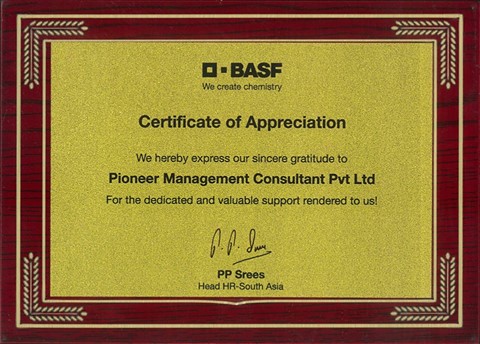“You have skill, I have will. You may succeed but I will succeed.”
Will has always been the most important but un-highlighted part of all the management theories of the world. Most people usually rise daily to do or find a job out of necessity or compulsion and not out of will. Whereas the wilful people are already involved in the work of their interest.
One might think of the situation that willingness to learn is more important to the employers or to the employees. But the thing to be noted is that willingness is the premium quality that describes the connection between the employer and the employees. In the corporate world, all that matters is neither qualification nor cooperation but the mind-set on which everything depends. In such a case, a positive mind-set can make you achieve every desired thing. And if willingness to learn is added to the positive mind-set, it may lead to outstanding performance.
The employers of the 21st century are pushing themselves in the competition to hunt for the perfect employee, who works not out of force but out of passion. Whose each step in the organization is times better than the last one, not by the pressure but out of competitiveness. The perfect reference that could be sought is that of Mr Sundar Pichai, an ordinary employee of the renowned company Google, who got the regular offers from other companies and promotions in own for the extraordinary performance. Finally given the position of CEO in Google itself when got the tempting offer from Microsoft. This is the classic example when your willingness to learn may be seen as the tunnel for the huge success of the company as well as of oneself.
The willingness to learn is such a quality in an employee that automatically pushes oneself out of the comfort zone and due to which the person goes to work instead of being called. And this quality is among the most required ones by the employers and the bosses of modern time. Further, this opens up and paves the way for the employees to gain mastery in different fields altogether, making them what is referred to as ‘ideal employee’.
The quality of willingness to learn may also many of the times act as the dense critic or a positive criticism, and not a source of flattery for the employees. The employers usually find those employees impressive who carry along with themselves an optimistic viewpoint about the betterment of organization along with or prior than of themselves.
When a resume of the person reaches the hands of a recruiter or PR team, his/her willingness to learn is explicitly represented in the words used. His words show that a person ‘wants a job’ or a person ‘needs a job’. And putting the willingness to work and willingness to learn as key requirements, usually the person who wants a job is appointed. This may also sometimes be seen as the selfish motive or capitalist tendency of the corporate world, but the shadowed secret of the corporate world is “Leisure”. Until a person does not get rid of day to day problems, it’s barely possible for him to focus on the corporate line. Work must be a passion and not just a need in the corporate line.
The person with the willingness to learn is often preferred by the employers as such people never see themselves as “the master of all trades”. This attitude or the quality of the person supports the Bossy behavior of the superiors in the organization. This quality may not lead to flattery but definitely leads to a sense of courage and politeness. And rest all depends on the eagerness to learn, even to learn diplomacy and tactics in the respective field.
Learning is a regular process, and is useful not only to gather the skills and experience, but to achieve competitiveness in the society. The person wilful to learn may learn everything from the surroundings, which includes how the people are achieving success, what are their ways and techniques and why are other people downtrodden. And thereafter would be wearing all the learning and knowledge as the shell that may take oneself equivalent to the experienced individuals, even if they are on the higher authority.
But often the question arises, if willingness to learn is so important than how one can develop it within oneself. Two factors that directly determine the willingness to learn are – Optimism and Curiosity. Gaining curiosity about all the fields and expressing your views and ideas to all is the only way by which your willingness can be demonstrated. This automatically gives a push to your creativity, attracts opportunities and eventually helps you to get rid of all the difficulties.
Even the great boxer Mike Tyson has explained the importance of will in an interview. He says, “Will is definitely more important than skill. In the ring, I may fall due to my lack of skill but my will will definitely force me to rise up and fight again.” Skill may provide a person determination, but will may grant the person motivation to perform a certain work.
So and therefore any of the employers are more than happy to recruit a person full of adaptability and cooperation, who is willing to learn at each and every step. The normal person during the recruitment may or may not be skillful, but a wilful person will definitely be skillful one or the other day.
“The will to learn leads a person in a far better way than the will to earn.”
______________________________________________________________________________________________________________
Tarun Tilokchandani - An impassioned content writer -- specialized in History and Politics
#recruitment #hiring #pmcpl #pioneermanagementconsultantpvtltd #humanresource #willingnesstolearn #learning #willingness



Leave a comment